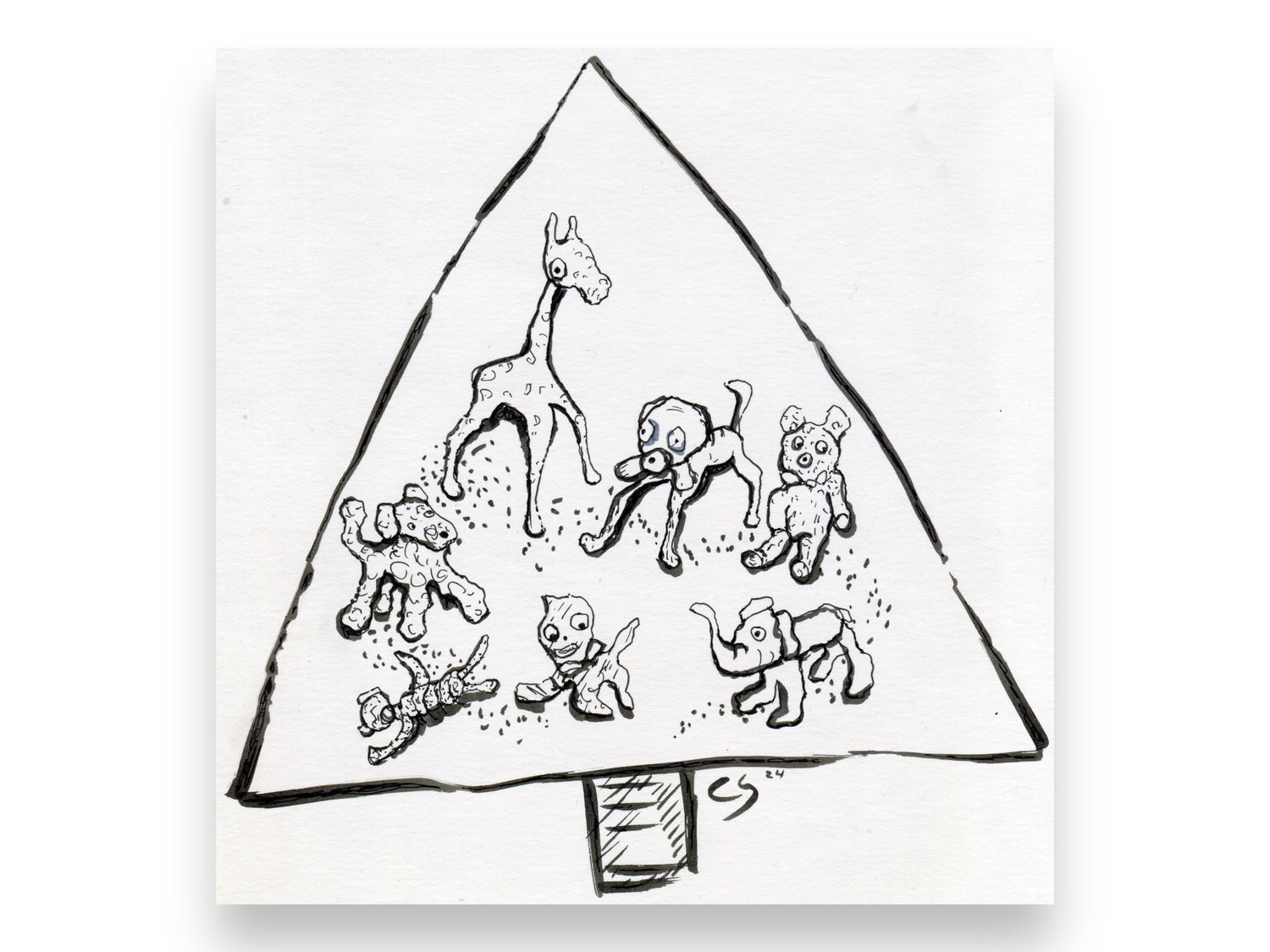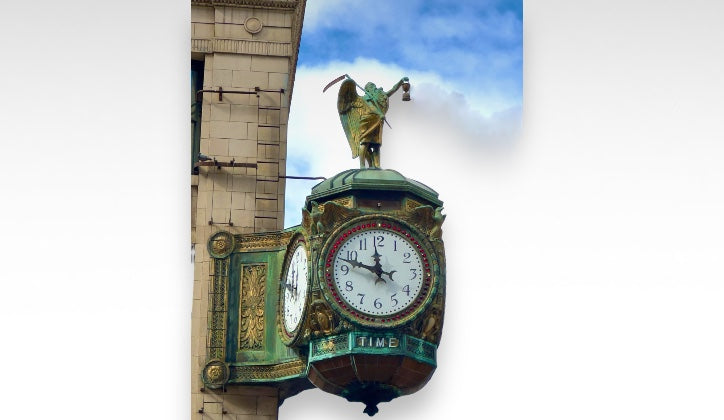
At the end of 2023, I cozied up on the couch, watching a timeless children's favorite from 1976 called Rudolf's Shiny New Year. As I got completely engrossed in the story, one character in particular piqued my curiosity - Father Time, brilliantly portrayed with the voice of Red Skelton, who also served as the narrator. I started to wonder about the origins of this fascinating character. When did "Father Time" make his grand entrance onto the stage of history? And who were his earliest connections?
A Connection to Cronus, the Greek God
The concept of time has intrigued humanity since ancient times. It is a universal theme throughout literature, philosophy, science, and art. Time plays a crucial role in shaping our lives and experiences, and its understanding and interpretation have been a subject of deep contemplation by humans throughout history.
One enduring story that beautifully captures the essence of time and its significance is the tale of Father Time. This iconic figure, often depicted as an elderly man with a flowing white beard and a scythe, has become synonymous with the passage of time and the inevitability of change. Finding the origin of Father Time dates back to the ancient Greek god Cronus, whose fascinating connection to the concept of time adds depth and resonance to this timeless classic story.
The Myth of Cronus
In Greek mythology, Cronus was one of the most powerful and revered Titans, the divine beings who ruled before the Olympian gods. As the son of Uranus (the sky) and Gaia (the earth), Cronus was destined to become the ruler of the universe. However, an ancient prophecy foretold that one of his children would overthrow him, just as he had overthrown his father.
Driven by fear and paranoia, Cronus devoured each of his newborn children to prevent the prophecy from coming true. This gruesome act symbolized the relentless passage of time as Cronus consumed his offspring, ensuring that nothing could escape his grasp. The fear of losing his power and control led Cronus to commit these heinous deeds, setting the stage for the emergence of Father Time.
The Birth of Father Time
The story takes a twist when Rhea, Cronus' wife and sister, decides to save her sixth child from a similar fate. In a moment of desperation, she devises a plan to deceive Cronus. Instead of giving him their newborn son, Zeus, she wraps a stone in swaddling clothes and presents it to him. Blinded by paranoia, Cronus swallows the stone without realizing the switch.
Rhea then sends Zeus away to be raised secretly, away from his father's clutches. As Zeus grows up and fulfills the prophecy, he eventually confronts Cronus, forcing him to regurgitate his swallowed children. This act symbolizes the liberation of time from the grip of Cronus as the once-consumed children return to the world, free from his control and breaking the cycle.
The Emergence of Father Time
With the fall of Cronus, the concept of time takes on a new form. Father Time emerges as a personification of the cyclical nature of time, representing a constant transition from past to present to future. Depicted as an elderly figure, Father Time carries a scythe, symbolizing the inevitable passage and end of all things.
Father Time and Cronus share a profound connection in their representation of time's power and influence. While Cronus embodies the fear and control associated with the linear progression of time, Father Time embodies the acceptance and wisdom of embracing existence's cyclical nature.
The timeless classic story of Father Time and its connection to Cronus, the Greek god, reminds us of time's inherent power and significance in our lives. It serves as a reminder that time is a force to reckon with and a gift to be cherished.



